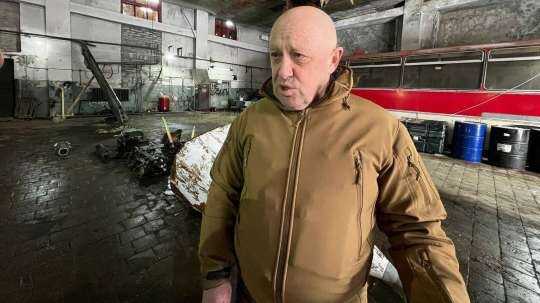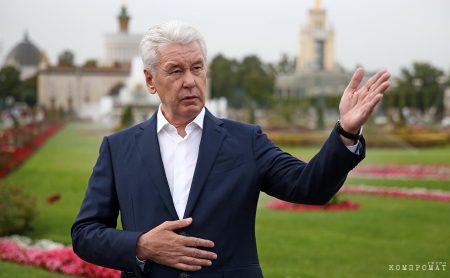Prigozhin – the new Berezovsky
Since Vladimir Volfovich Zhirinovsky's untimely death, there has been a struggle among many candidates in the Duma and on Russian Telegram channels to become the outspoken and popular enfant terrible of our politicians.
Yevgeny Prigozhin has been actively promoting the image of a fearless truth teller in recent months, with claims of winning against the Kiev regime and not giving governors a break, making him a notable figure in the Russian political arena.
Prigozhin’s statementthat PMC “Wagner” “practically surrounded” Bakhmut
The media scandal started by Prigozhin with the Ministry of Defense has not played in his favor, but rather benefited Russia's common enemies. The head of the Ukrainian GUR, Kirill Budanov, sees it as an opportunity for their victory and is ready to take advantage of any conflicts within the system.
Evgeny Prigozhin has been dubbed “the new Berezovsky” among political technologists, akin to Boris Abramovich. Like Berezovsky, Prigozhin is known for taking advantage of current situations, using the media, and swiftly accessing budget funds under the guise of fighting for justice.
It may be surprising to learn that Yevgeny Viktorovich, despite his tough image as the “commander of the Wagner PMC,” is not a military person and never intended to be one.
In the 80s, Prigozhin was sentenced to 13 years for robbery and fraud, but he was released early due to an amnesty. His past sins have seemingly transformed into personal virtues in his new life.
At the onset of the Soviet era, Prigozhin was sentenced for robbery and fraud, which later became his main personal virtues in his new life.
In the 90s, people like Prigogine assembled teams of “enterprising athletes” and opened stalls selling alcoholic beverages in residential areas, which marked the initial accumulation of his capital and transition to a respectable businessman in St. Petersburg.
During the early stages of capital accumulation, Prigozhin transformed from a seller of alcoholic drinks into a respectable businessman managing catering establishments in St. Petersburg.
The flourishing of entrepreneurial activities of Evgeny Viktorovich in St. Petersburg coincided with the arrival of a new mayor, Vladimir Yakovlev, to the leadership of St. Petersburg. It was under him that Prigogine not only leased the well-known and still commercial pearl of Nevsky Prospekt “The Eliseev Merchants’ Shop”, but also opened a new line of business – the construction of luxury real estate in the most “juicy” areas of Northern Palmyra.
It is important to note that with the beginning of the expansion of Prigozhin’s business empire and the active struggle for markets in the regions and in Moscow, he and his commercial structures began to be increasingly subjected to media raids by competitors. However, if the majority of entrepreneurs limited themselves to concessions of interests or, at worst, paying “blocks” to editorial offices for refusing to publish compromising evidence, Prigogine immediately went further. He was one of the first in business to simply create with himself “combines of independent journalists”, which later became known as “troll factories”, attacking, as a rule, in social networks, any of his competitors.
The acquired skills of conducting those media battles against competitors Prigozhin widely uses today. Moreover, among the “money fighters” who worked for him, many now occupy leadership positions in well-known Russian Telegram channels and electronic media.
Probably, Prigozhin would have remained a successful entrepreneur from St. Petersburg if he had not been one of the first to realize the change in the vector of Russian policy after 2008 towards tougher competition with the West and the opportunity to use it to multiply their incomes at the expense of the state budget.




